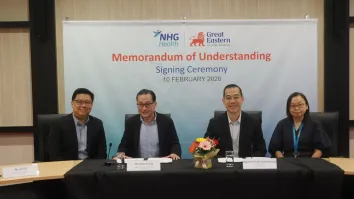
Philippines mulls drug price cuts for foreign pharma
This is expected to affect local pharma growth in the short term.
Aiming to address concerns over rising drug prices, the Philippines is considering the implementation of wide-ranging price cuts to expensive medicines primarily sold by foreign pharmaceutical companies, according to a Fitch Solutions report.
The introduction of maximum retail prices (MRP) hopes to widen access to medicines and improve health outcomes. The MRP scheme establishes price levels throughout the supply chain, including manufacturers, wholesalers, and retailers.
The government is also aligning with drug pricing recommendations from the United Nations and the World Health Organization, which both believe that the latest biomedical innovations are too expensive for the government and patients in emerging markets.
The majority of the drugs affected by the MRP are newly introduced products for the treatment of chronic conditions such as cancer, diabetes, and cardiovascular conditions; and large drugmakers from Europe and the US are most exposed to the initiative, Fitch said.
However, the scheme is expected to affect local distributors, pharmacies, and private hospitals. The Pharmaceutical & Healthcare Association of the Philippines (PHAP) said that the MRP scheme is unnecessary and that the government should use more pooled procurement mechanisms to lower the cost of medicines.
The PHAP believes that prices in the Philippines are already comparable to countries such as Malaysia or Vietnam. It also noted that China withdrew a similar scheme, and subsequently introduced a nationwide bulk tender.
However, with higher volume sales and greater competition in the market, Fitch believes that these price controls could be positive for the market over the longer term.
“If patients and other payers are attracted to the new lower-priced pharmaceuticals, greater demand should attract more suppliers to the Philippine market, which is often overlooked by firms seeking opportunities in the Asia Pacific,” the report stated.
Fitch advised for more government spending on the latest innovations in the pharma market, which have a low uptake in the Philippines.



















 Advertise
Advertise







